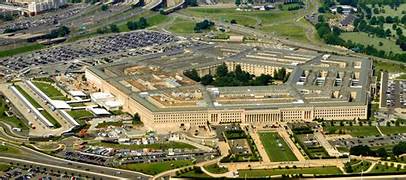The Pentagon has a brilliant plan—they’re on a hunt for some top-notch books about Russian military strategy. And where are they planning to use these literary gems? To help train their pilots, of course!
Their reading list includes “Strategiya: The Foundations of the Russian Art of Strategy” by Ofer Fridman to “Russian Grand Strategy in the Era of Global Power Competition” by Andrew Monaghan and Samuel Ramani’s take on the Ukraine conflict.
After continuous losses in the Ukraine-Russia conflict, they have started to learn about war, as, a comprehensive understanding of everything from geopolitics to the final frontier is imperative for the US to jump back from its declining military strength.
The Pentagon is on a mission to stock up on some serious brain food—books. But not just any books. They’re diving headfirst into the labyrinth of Russian military strategy. This eyebrow-raising revelation comes straight from the government’s System for Award Management (SAM) website. And let me tell you, the timing couldn’t be more perfect. With the U.S. tripping over its shoelaces in Ukraine and stumbling through military misadventures across the globe, a crash course in Russian tactics seems just like what the doctor prescribed.
These books aren’t destined for one’s run-of-the-mill book club or cozy library corner. They’re going straight to the skies; the Pentagon is swapping out those dusty old textbooks at war colleges for a fresh batch of Russian military intel. Better late than never, right?
It’s all going at none other than Maxwell Air Force Base in Alabama. Back in 1910, the Wright Brothers laid the groundwork for what eventually became Maxwell Air Force Base. Fast forward a few years, this airfield-turned-base found itself in the spotlight during World War I, serving as a handy airplane repair depot for the U.S. Army. Maxwell Air Force Base isn’t your average military installation—it’s a veritable breeding ground for brainy military types. And yet, here they are, clamoring for more books to cram into their already overstuffed brains, maybe that is why, the US has always been busy making strategies and concepts that seem brainy but can’t sustain on the ground. Therefore, they are ordering books that can provide them with strategies on how to win a war.
The Pentagon has its eyes set on some real page-turners. Among the literary gems on their shopping list is “Strategiya: The Foundations of the Russian Art of Strategy” by Ofer Fridman, serving up some serious brain food from King’s College London. From the subtle nuances of Russian tactics to the broader geopolitical landscape, this book promises to be a real eye-opener. The book offers a comprehensive exploration of the historical, cultural, and geopolitical factors shaping Russian strategic thinking, shedding light on how these elements influence contemporary military policies and actions.
Then there’s “Russian Grand Strategy in the Era of Global Power Competition” by Andrew Monaghan, promising to unlock the mysteries of geopolitics on every page. It offers a profound examination of Russia’s strategic outlook amid the complexities of contemporary international power dynamics. The book delves into Russia’s geopolitical aspirations, exploring its efforts to assert influence on the global stage. Monaghan meticulously dissects Russia’s strategic calculus and analyzes Russia’s responses to evolving security challenges and rivalries with other major powers.
Samuel Ramani’s take on the Ukraine conflict is another. Samuel Ramani is a respected academic and expert in international relations, particularly focusing on Russian foreign policy, Middle Eastern affairs, and conflict studies. He sheds light on their motivations, strategies, and the broader impact of Russia’s actions on regional and global security.
The Pentagon is going all out, throwing in books on everything from artificial intelligence to space strategy. Because, being a top-notch pilot, these days requires a crash course in everything from AI to intergalactic warfare. The Pentagon is buying 600 copies per title.
So, if you see a pilot with their nose buried in a book, don’t be surprised—they’re just brushing up on their geopolitical know-how. And who knows? Maybe these books will help them soar to new heights and navigate the stormy skies of international relations with ease.
